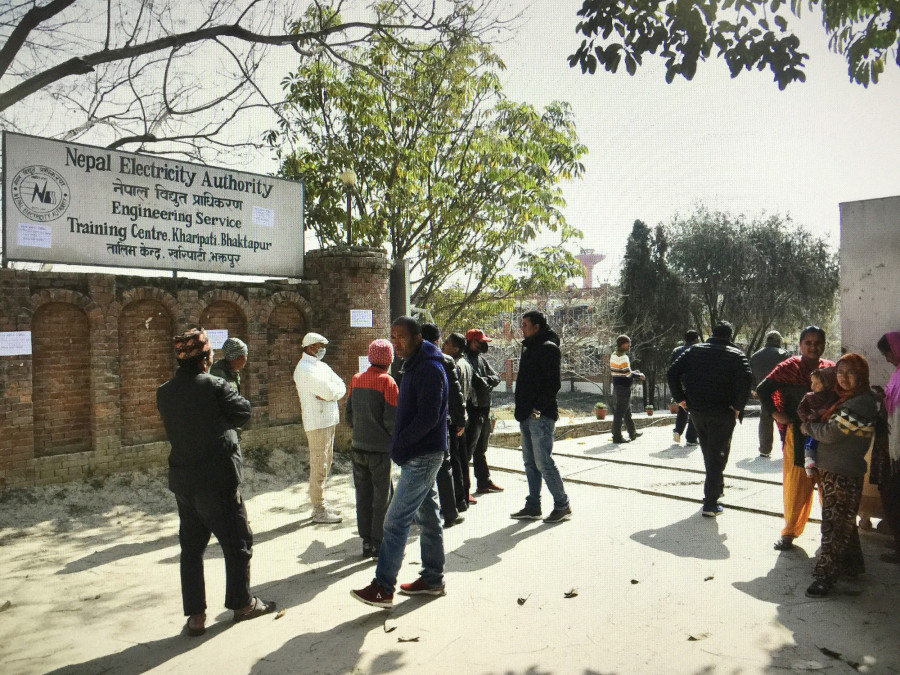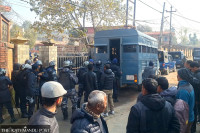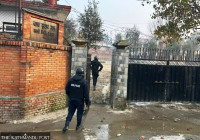Valley
Concerns over quarantine centre in Bhaktapur stem from lack of trust in government
The government has failed to communicate to the public properly about the new strain of virus and risk factors, causing panic among people, health experts say.
Arjun Poudel
Gyan Bahadur KC, chairman of Changunarayan Municipality of Bhaktapur Ward No. 7, is enraged and concerned, just like other residents of his ward and those in Ward No. 6. Their worry stems from the government plan to quarantine Nepalis to be evacuated from Hubei Province of China, the epicentre of the new strain of coronavirus, at the training centres of Nepal Electricity Authority and Drinking Water Corporation.
According to KC, residents are anxious about putting those Nepali nationals in quarantine in their locality.
KC has extended moral support to the protests launched by locals against the government plan to convert the two training centres into quarantine facilities, terming their concerns over the possible spread of the virus as genuine.
“I would like to draw the attention of political leaders to the unanimous decision of the municipality’s executive council meeting to stop keeping people rescued from China in our locality,” he said. “How can I assure locals that they are safe and nothing will happen? I am not sure myself if it will be safe to be in the same locality with people rescued from a region hit by the deadly virus.”
The new strain of coronavirus, now dubbed covid-19, has killed at least 1,350 died and over 60,000 infected in China.
The government is planning to send a plane to Wuhan on Saturday to bring back the Nepalis stuck in China. Once back in Nepal, all of them have to stay in quarantine, at least for 17 days.
“Out of fear of a disease outbreak, people from our areas have started moving to safe places,” said KC.
Health experts say Bhaktapur locals’ concern shows people have little trust in the government that it will be able to handle the situation in the event of an outbreak.
Despite announcing to bring back Nepalis from China, the government’s preparations have been sluggish, just as those stranded in Hubei constantly called for evacuating them at the earliest. It took weeks for the government to finalise the location for quarantining them once they are brought back. Doctors say hospitals lack proper isolation facilities and intensive care units if the health condition of evacuees deteriorates.
Even though the death toll and infections have continued to rise, in Nepal there has been only one confirmed case so far.
So the fear among the general public is largely because of lack of information, say health experts.
“The government has failed to disseminate information on the risk factors,” said Dr Baburam Marasini, a former director at the Epidemiology and Disease Control Division. “The government has neither communicated with people properly nor has done substantial preparations for risk management.”
Prakash Lamichhane, a local of Bageshwori, said people are worried about the spread of the disease, as they hardly know what the government has done to curb the spread of the virus since the outbreak in China.
“What we know is based on what we see on television and there are so many people dying,” Lamichhane told the Post over the phone. “We cannot rely on the government’s preparations.”
Locals of Ward Nos. 6 and 7 of the municipality have even staged protests to stop the government from keeping the evacuees from China in quarantine in their locality.
According to health experts, the recent coronavirus outbreak has once again exposed the country’s fragile health care system. It’s not only about how the country can deal with the situation in the event of a coronavirus outbreak, but Nepal also is not prepared at all to deal with any health emergencies, they say.
Dr GD Thakur, also a former director at Epidemiology and Disease Control Division, said people by and large do not believe that the government is for them and when it comes to healthcare, they simply don’t trust the government.
For years, Nepali politicians have paid little attention to the country’s poor healthcare system. A majority of the leaders fly abroad for treatment when they are sick, largely oblivious of the sufferings of the general public.
People who are visiting government hospitals in the country even for serious illnesses are those without any other option, health experts say.
“People have lost faith in the government system,” said Thakur. “As far as the recent coronavirus outbreak in China is concerned, the government should have set up facilities long ago, as it knows over 1,000 could be returning from China, apart from those 180 from Hubei who have officially signed up expressing their desire to return.”




 20.12°C Kathmandu
20.12°C Kathmandu











